Why These 10 Companies Turning 100 or Older in 2017 Still Matter It takes resilience and a willingness to change to weather more than a century.
Opinions expressed by Entrepreneur contributors are their own.

When we think of today's most innovative companies, we often list those that are less than a decade old, based in Silicon Valley and have recently gone public.
Arguably more impressive, however, are the companies that have been around for not just 10 years, but 10-plus decades. That is, before the internet, let alone television, air travel, the Great Depression and the end of the first World War.
Related: 8 Groundbreaking Companies and Products Turning 10 in 2017
These companies haven't just scraped by. They've reinvented themselves multiple times, acquired and sold entire business divisions and remained at the forefront of branding and marketing. As mass consumption habits and values have evolved and fragmented, they've simultaneously leveraged their timeless appeal and adapted to stay current.
It takes resilience and willingness to change to weather more than a century. Click through to learn which companies are celebrating milestone anniversaries in 2017 -- and how they've managed to stay relevant well into the 21st century.General Electric | Founded: 1892 (125 years old)
General Electric formed when the Edison General Electric Company (founded by Thomas Edison in 1878) merged with the Thomson-Houston Electric Company. It's the only company still listed in the Dow Jones Industrial Index of the original 12 from 1896.
Its staying power results from not simply its size, but more specifically its range. The industrial conglomerate has added numerous business segments throughout its lifetime, including health care, various energy categories, aviation, transportation and even capital. Diversifying -- and knowing when to let go of a particular category -- has kept GE strong despite market fluctuations.
GE continues to look toward the future. In 2016, the conglomerate announced it would sell its industrial solutions, water and appliances divisions. It's also begun to position itself as a software and analytics company, despite skepticism, and in doing so has updated its recruitment efforts to attract millennial talent. It's reportedly adopted more of a startup culture with regards to risk-taking and speed for the sake of innovation. In the process of updating its image, GE has also been a pioneer on social media, including with Snapchat and Facebook Live.
Today, the company employs 333,000 people across 170 countries. Its leadership training program, Crotonville, is the oldest corporate university in the country. Aon Hewitt granted GE the number-one spot in its most recent "Top Companies for Leaders" list.Coca-Cola | Incorporated in 1892 (125 years old)
Coca-Cola was incorporated in Atlanta in 1892 with an initial capitalization of $100,000. Today, its market cap is $178.8 billion.
Asa G. Candler purchased the rights to the product from its creator, Dr. John Stith Pemberton, prior to his death. Both men invested heavily in advertising. Candler distributed coupons for free glasses of the beverage and produced merchandise such as calendars, clocks and even urns displaying the company's trademark imagery.
Related: You Won't Believe How Old Some of These Franchises Are
Growth continuously exceeded his expectations. In 1898, Candler declared the company's new three-story headquarters building -- which housed production and management -- as "sufficient for all our needs for all time to come." Needless to say, the facility wouldn't come close.
Through the years, Coca-Cola has survived a series of challenges, with imitation being one of its biggest obstacles. It's also kept up with the insatiable demands of global consumers, who expect a plethora of choices when it comes to products and packaging. The constant, of course, has been its signature product and trademark, which are cultural icons. The company now operates in more than 200 countries and operates nearly 450 brands.
The J.M. Smucker Company | Founded: 1897 (120 years old)
At the turn of the 20th century, Jerome Monroe Smucker opened a cider mill in Orrville, Ohio. Soon, he began making apple butter and selling it out of the back of a horse-drawn wagon.
Today, Smucker's remains a household name for jams, jellies and other fruit spreads. However, these peanut butter sandwich companions aren't the only products in J.M. Smucker Co. 's pantry. Many might be surprised to learn that the company also owns brands such as Folger's, Dunkin' Donuts packaged coffee, Crisco, Pillsbury, Hungry Jack, Café Bustelo, Milk Bone, Meow Mix and even Jif. In recent years, Smuckers has found success with new products such as Folger's K-Cups, Smucker's Uncrustables and alternative nut butters such as hazelnut and cashew.
What's most striking about J.M. Smucker Co.'s longevity is its leadership. In 2016, Mark T. Smucker became the fifth-generation president and CEO of the company, succeeding his father and uncle, who are now chairmen. Family collaboration is a major factor in the success of the company, which is still based in Orrville.
J.M. Smucker is rooted in a set of "Basic Beliefs" (Quality, People, Ethics, Growth and Independence), which have been passed down from its foundation.
Target | Founded: 1902 (115 years old)
George Draper Dayton traveled from New York to the Midwest in the late 19th century and identified an opportunity for growth in Minneapolis. He established the Dayton Dry Goods company, which later developed into a department store and simply became the Dayton Company. Signage read "Dayton's."
Dayton's was a pioneer in many respects. In 1920, it became the first retailer to transport merchandise domestically via airplane. In the 1950s, Dayton's stores moved to the suburbs, but its boldest move was offering competing products under the same roof. 1962 marked the launch of Target mass-market discount stores by the company.
From there, the company held various holiday-themed events -- a precursor to the "in-store experiences" that are trendy with brick-and-mortar retailers striving to stay relevant in the 2010s. Dayton acquired and sold Mervyn's and Marshall Field's department stores. The company modernized with UPC scanning, wedding registries and urban CityTarget stores.
Related: Are Retail Brands Ready to Compete in the New Normal?
As the Target Corporation, the company expanded grocery offerings, added a pharmacy (and later partnered with CVS Health) and opened and shuttered 133 Target stores in Canada. Today, there are 1,803 Target stores in the United States.
In 2015, Target backed away from gender stereotypes with more neutral labeling of children's products, and it announced it would allow transgender customers and employees to use the bathroom of their choice in its stores.
JCPenney | Founded: 1902 (115 years old)
While many legacy retailers are struggling to survive as ecommerce proliferates, JCPenney is rising to the challenge.
In the past three years, JC Penney has shuttered dozens of stores. However, in the spring of 2016, JCPenney saw its shares rise to $11.99, which led to headlines such as CNN Money's "JCPenney is back from the dead." Mad Money's Jim Cramer said in June 2016 that Nordstrom is the most likely to survive of any of the major department stores, but he noted that JCPenney is the only one that has been moving in the right direction.
Related: These 5 Retail Innovations Could Actually Make You Want to Shop in a Store Again
According to STORES Magazine , the retailer is updating its core departments, adding Sephora "store within a store" locations and incorporating omnichannel options such as the ability to buy products online and pick them up at a brick-and-mortar location. It's also playing up its private label brands, and it's beginning to sell appliances for the first time since 1983 in a move to more directly challenge competitor Sears.
The retailer has come a long way, moving from downtown centers to suburban shopping malls and away from a catalogue sales model. As transactions continue to move to new, virtual spaces, JCPenney is trying to meet customers where they are.UPS | Founded: 1907 (110 years old)
In 1907, teenagers Claude Ryan and Jim Casey used a $100 loan to start UPS (then the American Messenger Company). By 1913, the company had merged with a competitor and begun to downplay its messenger service as telephones became more common. Now renamed Merchants Parcel Delivery, in many cases its employees would work directly out of grocery and drug stores.
In that first decade, the company began building its fleet of delivery vehicles and convinced retailers to outsource, rather than handling deliveries in-house. In 1919, the company rebranded once again to become the "United Parcel Service." This was also the year that it painted its trucks its signature brown.
Related: If These 4 Legacy Brands Can Get Their Message Across, So Can You
The 1920s brought prosperity and growth, and UPS began delivering to private addresses. The company expanded during the Depression, though World War II rations forced UPS to limit its operations temporarily. It found a new niche with "50s and "60s suburban expansion, overcame regulatory battles, expanded across the U.S. and then the globe and launched its own airline in the 1980s.
Throughout the past 25 years, UPS has made significant technological strides as global ecommerce has exploded, including the proprietary handheld devices that every driver carries and electronic package tracking. It has made more than 40 acquisitions and now specializes in commercial supply chain solutions in addition to carrier services. After 110 years, UPS operates in 220 countries and territories and transports 15 million packages each business day.
Neiman Marcus | Founded: 1907 (110 years old)
The first Neiman Marcus store opened in Dallas, Texas, in 1907. Stanley Marcus, son of company co-founder Herbert Marcus, recalled some of the store's ups and downs in his 1974 memoir, Minding the Store.
He noted that the Great Depression didn't hit Neiman Marcus until late 1930, when sales began to decline. Marcus noted that despite this downturn, the store did not succumb to offering lower quality products. Enduring this exceptionally difficult period taught him the importance of maintaining high standards despite adversity.
The company recovered, in part thanks to Texas oil and the prosperity it generated. Neiman Marcus could afford to maintain quality, as customers could afford to shell out for it. However Neiman Marcus's success also stemmed from its wide-ranging appeal. It sold $50,000 furs in addition to $50 dresses, attracting a broad customer base. The store developed an aspirational element, luring shoppers from more modest backgrounds who wanted to flaunt wardrobes from a store that sold luxury items.
Neiman Marcus first sold its business in the 1980s. Its most recent sale was to the Canada Pension Plan Investment Board and private equity firm Ares Management for $6 billion in 2013. While it filed for an IPO in 2015, the offering never materialized. The company is steadfastly retaining its commitment to luxury even though a large proportion of consumers are seeking discount alternatives.Boeing | Founded: 1916 (101 years old)
Boeing is the largest aerospace company in the world and one of America's top exporters. It's rise to dominance in the industry required, like many of the other companies on this list, vast product diversification. Multiple Boeing products have changed the course of human history, from the 737, which is the most common commercial airliner, to the F-15 fighter jet and B-52 bomber.
Part of what makes Boeing unique is that it has not adopted offshore labor. It draws from a large network of nearly 20,000 suppliers and works with both commercial customers and the federal government. In the 21st century, Boeing demonstrates promise to expand in certain areas, including unmanned systems and space travel, writes Loren B. Thompson of the Lexington Institute.
Nikon | 1917 (100 years old)
Nikon formed from the merger of three Japanese optical manufacturers in 1917. By 1921, Nikon had produced its first pair of binoculars, followed by its first microscope in 1925. But it wasn't until after World War II that Nikon became a brand name for small cameras and garnered the attention of the global consumer market.
For the latter half of the 20th century, Nikon had the floor to develop new technology and build its customer base. Now in the 2010s, the company continues to expand its international operations. But it's biggest competitor is the network-connected smartphone. Its legacy is keeping it afloat, though its primary advantage over its younger competitor Canon may have to do with the speed at which it iterates new products.
Arri | Founded: 1917 (100 years old)
Based in Munich, Germany, Arri is the oldest motion picture equipment manufacturer in the world, but its first product was a printer. It's named after its co-founders, August Arnold and Robert Richter.
Arri developed the first light with a mirror facet reflector in 1924 and the first movie camera with a reflex viewfinder in 1937. Since then, Arri has innovated within every aspect of the film industry, from engineering to design, manufacturing, rentals, lighting, production, postproduction, distribution and visual effects. It's remained competitive in the 2010s by unveiling its Alexa digital video camera, which records compressed high-resolution footage to save filmmakers time and money.
In 2013, the company founded Arri Medical, using its imaging prowess for applications such as medical procedure filming and a 3-D surgical microscope.
Arri has received 18 awards from the Academy of Motion Picture Arts and Sciences. Prominent films that have been produced using Arri technology include Dark Passage (1947), Apocalypse Now (1979), Schindler's List (1993), The Lord of the Rings: The Fellowship of the Ring (2001), The Revenant (2015) and Rogue One: A Star Wars Story (2016).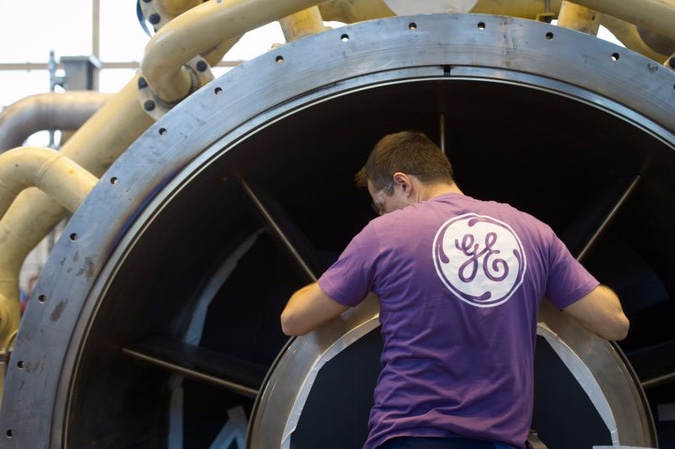 Sebastien Bozon | AFP | Getty Images
Sebastien Bozon | AFP | Getty Images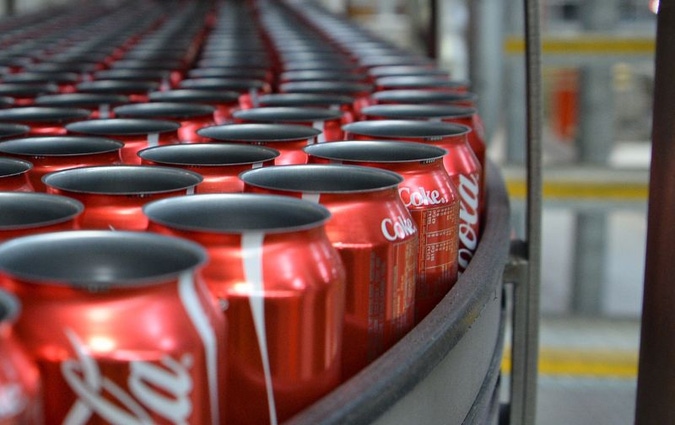 Carla Gottgens | Bloomberg | Getty Images
Carla Gottgens | Bloomberg | Getty Images Justin Sullivan | Getty Images
Justin Sullivan | Getty Images Scott Olson | Getty Images
Scott Olson | Getty Images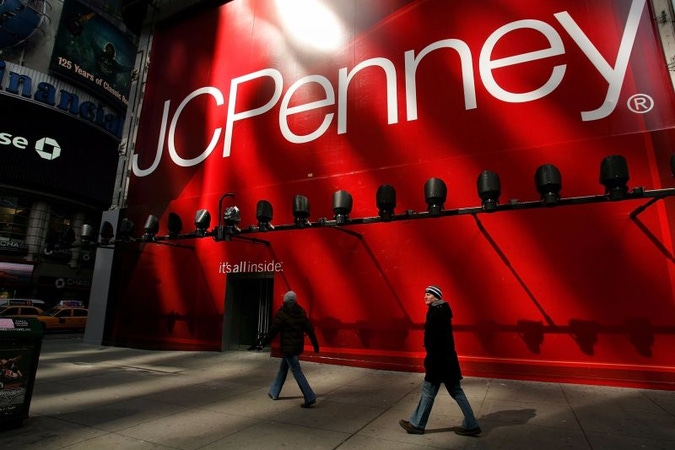 Spencer Platt | Getty Images
Spencer Platt | Getty Images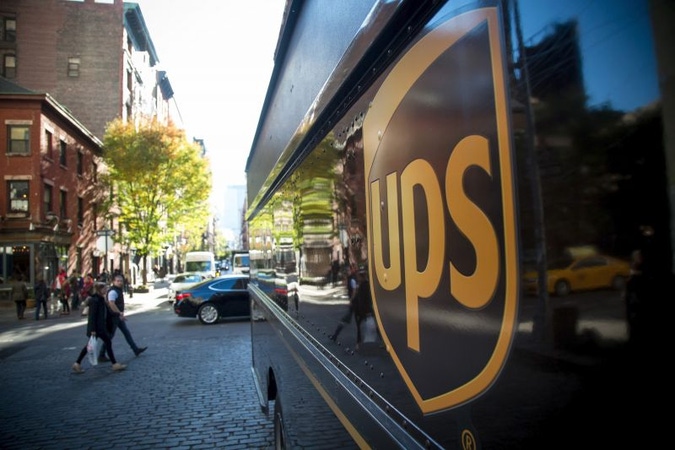 Michael Nagle | Bloomberg | Getty Images
Michael Nagle | Bloomberg | Getty Images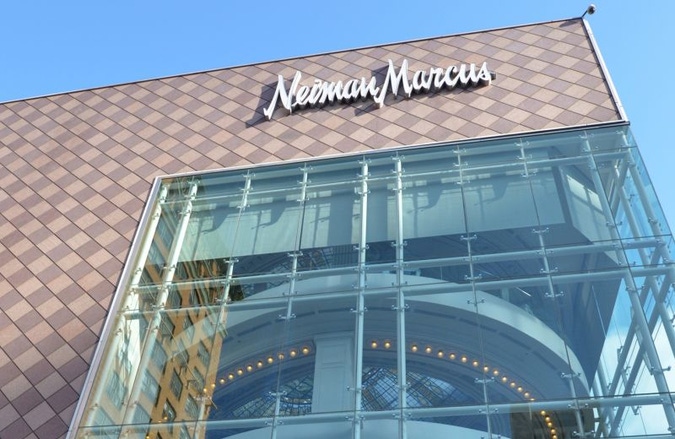 chameleonseye | Getty Images
chameleonseye | Getty Images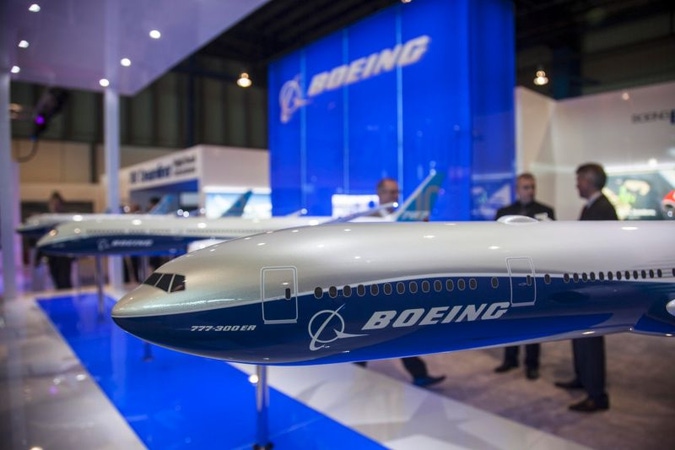 Yuli Seperi | Getty Images
Yuli Seperi | Getty Images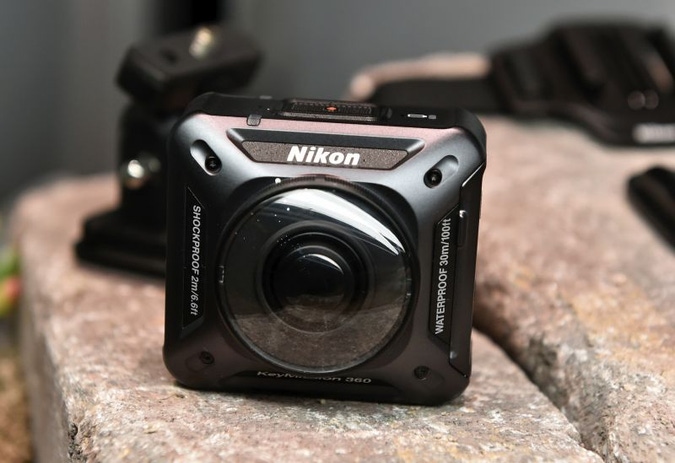 David Becker | Getty Images
David Becker | Getty Images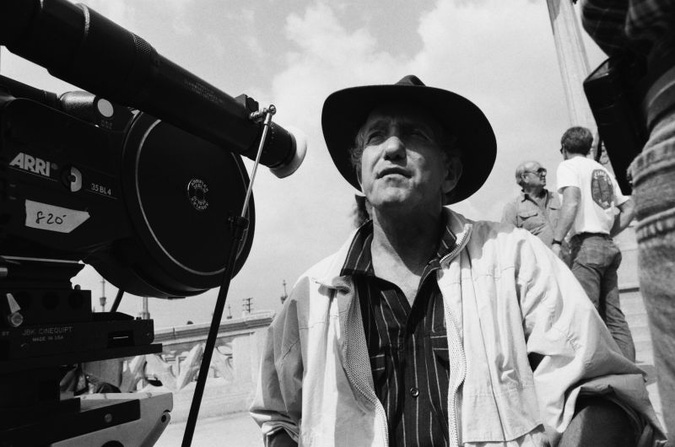 Robert Isenberg | NBC | Getty Images
Robert Isenberg | NBC | Getty Images









